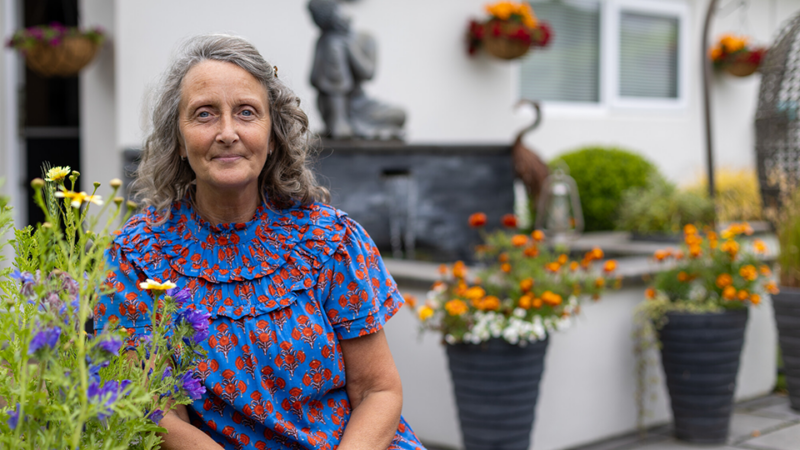
I am more than my dementia diagnosis – Gail’s story
After being diagnosed with Alzheimer’s disease at 54, Gail has dedicated herself to living as full a life as possible.
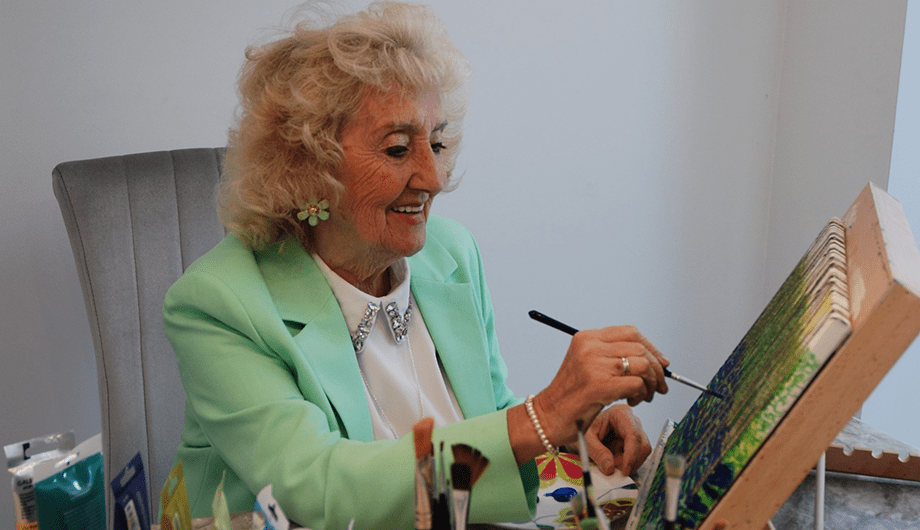
Since being diagnosed with Alzheimer’s disease in 2019, Sylvia has found a new purpose in expressing her feelings through painting.
I never expected to call myself an artist.
But at the age of 75, after my Alzheimer’s diagnosis, I found painting. And I want others to know that while dementia can take so much from us, new skills can be learnt. New memories can be made.
The people who know me best will tell you I’ve always been a positive person. I look for the best in situations, and in people.
I was Head Girl at my secondary school, which filled me with pride. After school, I went straight to work at the local mill. Then I met my lovely George. We’ve been married for nearly 56 years and have two beautiful daughters – Loraine and Lisa.
While I’ve never considered myself an artist, looking back, the signs of a creative eye were always there. From humble beginnings stitching local dance school dresses, my sister and I started a business sewing bridesmaid dresses, and even wedding dresses. We didn’t have formal training but we took enormous pride in our work, and we began to get many requests coming through.
I was always able to visualise how something could look, sketch it on an old piece of paper, and then bring it to life. I loved to make my own outfits and jewellery.
My other creative outlet was my garden. It was my canvas and I’d arrange it with splashes of colour that changed with the seasons and would give me so much joy.
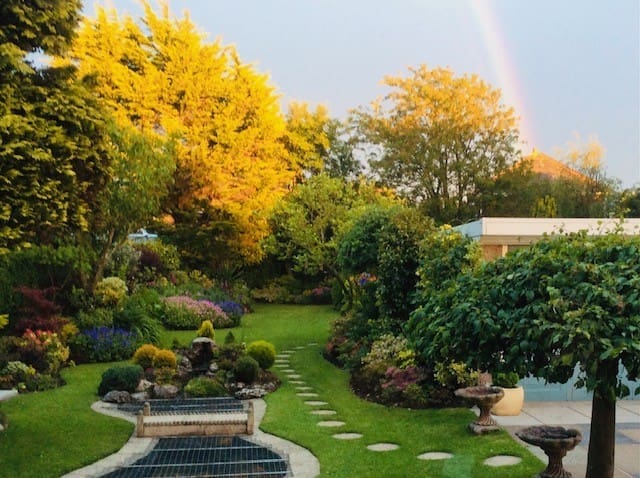
Sadly, Alzheimer’s isn’t new to my family. My mum, aunt and sister all lived with the condition.
Mum lived until she was 99 and three quarters! In her later years, she’d often think my dad was still alive and would save him a sandwich. Or she’d mistake me for my Aunt Dorothy. I learnt how important it was to treat people living with dementia with love and kindness. There’s no point arguing or losing patience with them, hard as that may be. It only makes things worse.
For me, the early signs started in 2019, when I was 71 years old. My spatial awareness began to deteriorate. I’d get confused – sometimes I’d be somewhere but forget why I was there.
Because I’d been a carer for Mum and my sister with Alzheimer’s, I knew what was coming. I remember one afternoon, asking both daughters to sit down on the bed at home and saying to them, “Be honest girls – do you think I have Alzheimer’s?”
They both said yes without much hesitation.
I was referred to the memory clinic, and on 30th August 2019, I was diagnosed with Alzheimer’s. By this stage, it was no longer safe for me to drive. I’d also stopped cooking.
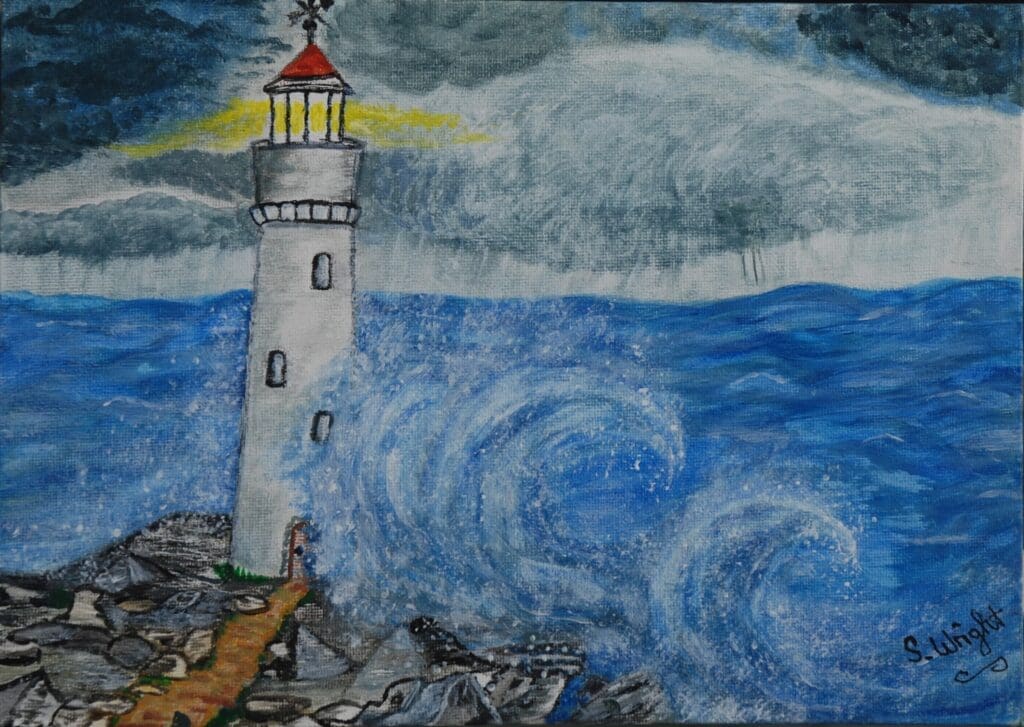
Alzheimer’s is a bully. It constantly tries to take things away.
But I don’t want to be defined by this bully. Instead, I try to think of Alzheimer’s as a different entity that has come to walk alongside me. It’s one I have learnt to live with. If I keep fighting it and never accept it, I don’t think it’s a fight I can win. If I live alongside it, there’s a degree of separation between the woman I am and always have been; and Sylvia with Alzheimer’s.
To somebody who has just received a diagnosis who may be feeling lonely or hopeless, I would say, don’t try to jump time. Don’t look six or 12 months down the road. Try to be the best person you can be on that given day. There’s nothing more you can do.
And secondly, don’t be too proud to ask for help. Having people to catch your hand will make your journey so much easier.
My favourite few hours of the week are from 4-6pm on a Friday. This is when our family comes together to enjoy some drinks and leave our troubles at the door. I truly believe that a family who plays together, stays together. And in these moments, we laugh so much – even my neighbour knows that from 4pm on a Friday, they should get ready to hear fits of laughter next door! It’s a tradition that started during Covid. But when the pandemic settled, we thought, why stop?
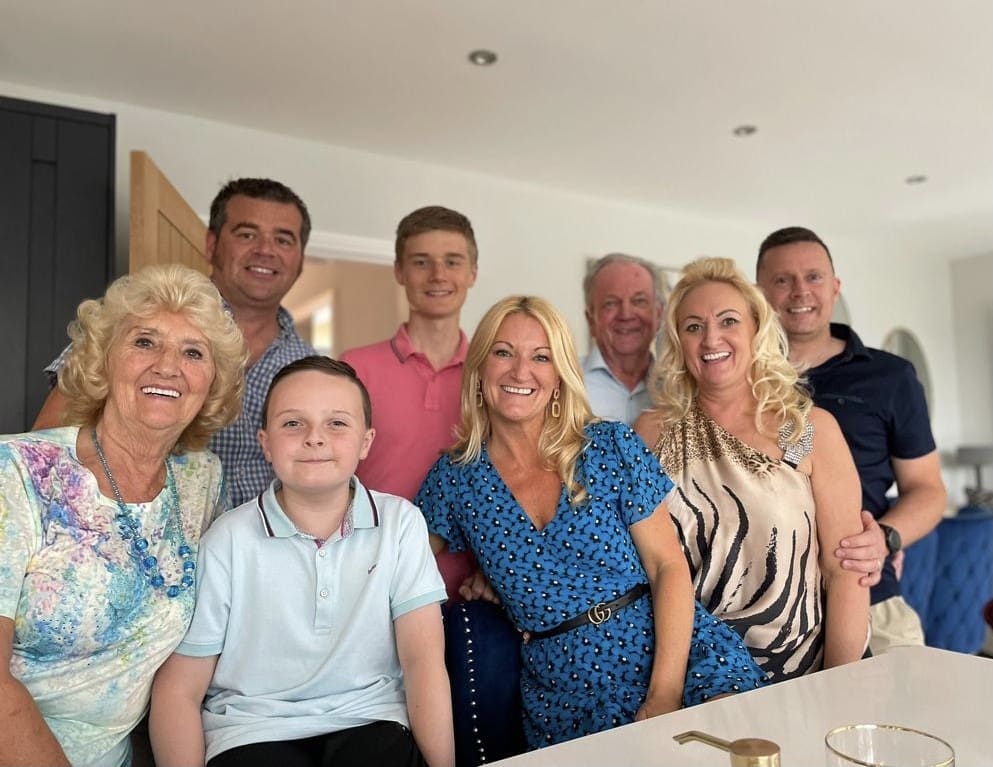
I cherish these occasions. And while I doubt medical professionals will prescribe cocktails as part of your dementia care plan, I would say to others in my position, find moments to share joy with the ones you love. Because in these few hours each week, I feel so connected to the moment and the people around me. I feel valued. And I feel heard.
Family really has been a pillar of support for me, especially my husband, George. I wish everyone who had dementia had a George in their lives. When I could no longer drive, he took over. When I could no longer cook, he took on the cooking duties. He does our finances. And he supports me through the bad days and the good. If we’re having a disagreement and I get a bit irate with him, no matter how much he disagrees with me, he’s learned to calmly respond with, “If you say so, my dear.” He’s my soulmate and I will never take him for granted.
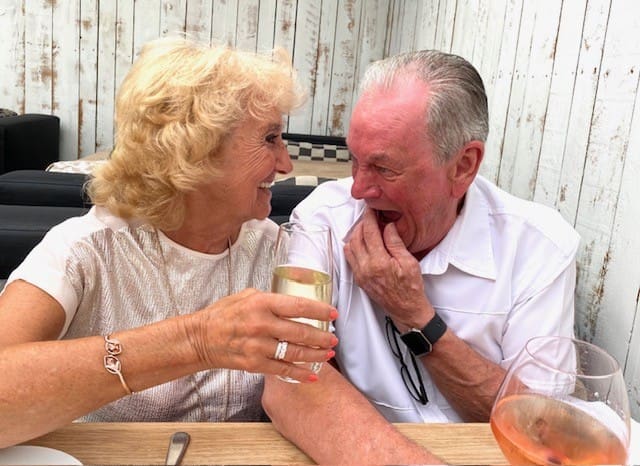
Since my diagnosis, I’ve made it my mission to keep my brain stimulated.
Painting hasn’t just given me an outlet, it’s given me a purpose. Putting my memories onto a canvas means Alzheimer’s can never steal them.
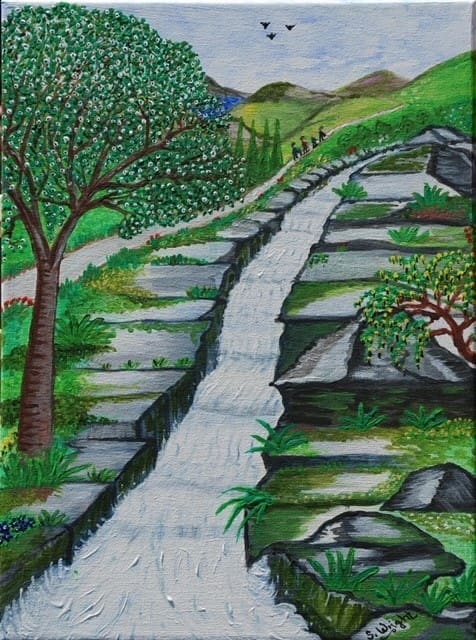
I have found art really helps to neutralise the lonely, negative anxiety of living with my diagnosis. The churning insecurity and frantic panic that comes over you when the shutters come down and your brain goes blank. Painting helps pull me back into the here and now. It fills my head with colour. There is no need for what we perceive to be a natural thought pattern. I can swirl and swish my paintbrush in any direction. It’s happiness on a palette.
My paintings are definitely not ‘fine art’, but they are an attempt to keep a grip on the here and now. They tell a story from the inside looking out with Alzheimer’s.
I also find purpose in being a hand-catcher. You might be wondering what this means.
When you’re diagnosed with dementia, it can feel like you’re falling. And you can feel so, so alone. What you need is someone to reach out their hand, clasp yours and pull you back up. To tell you it’s going to be okay. Tell you there’s a whole lot of living to be done. That’s what a hand-catcher does. It’s why I share my experience. There’s a lot of sadness with dementia. And until we have a cure, we need more hand-catchers.

It may sound strange, but I consider myself so lucky. Yes, I have Alzheimer’s and yes, it gets the better of me some days. But I am surrounded by people I love, and who love me. George and my two daughters are by my side. I still find so much joy in the world.
And while I can, I’ll keep choosing to smile.

After being diagnosed with Alzheimer’s disease at 54, Gail has dedicated herself to living as full a life as possible.
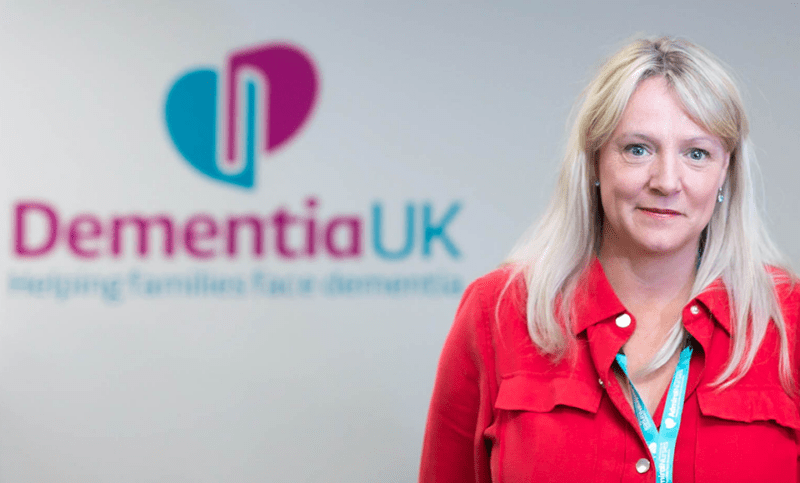
Helen McDavitt is the Head of Helpline and Clinics at Dementia UK.
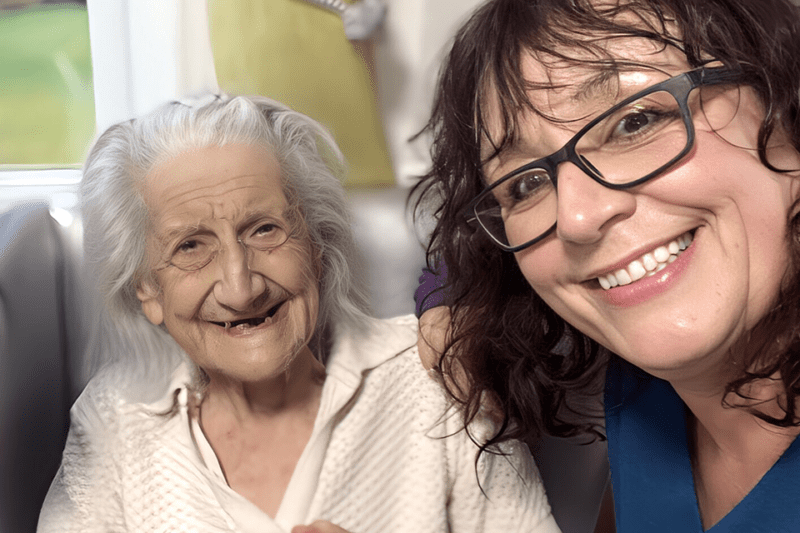
Shara reflects on her journey caring for Anna, her mother, who was diagnosed with vascular dementia in 2016.